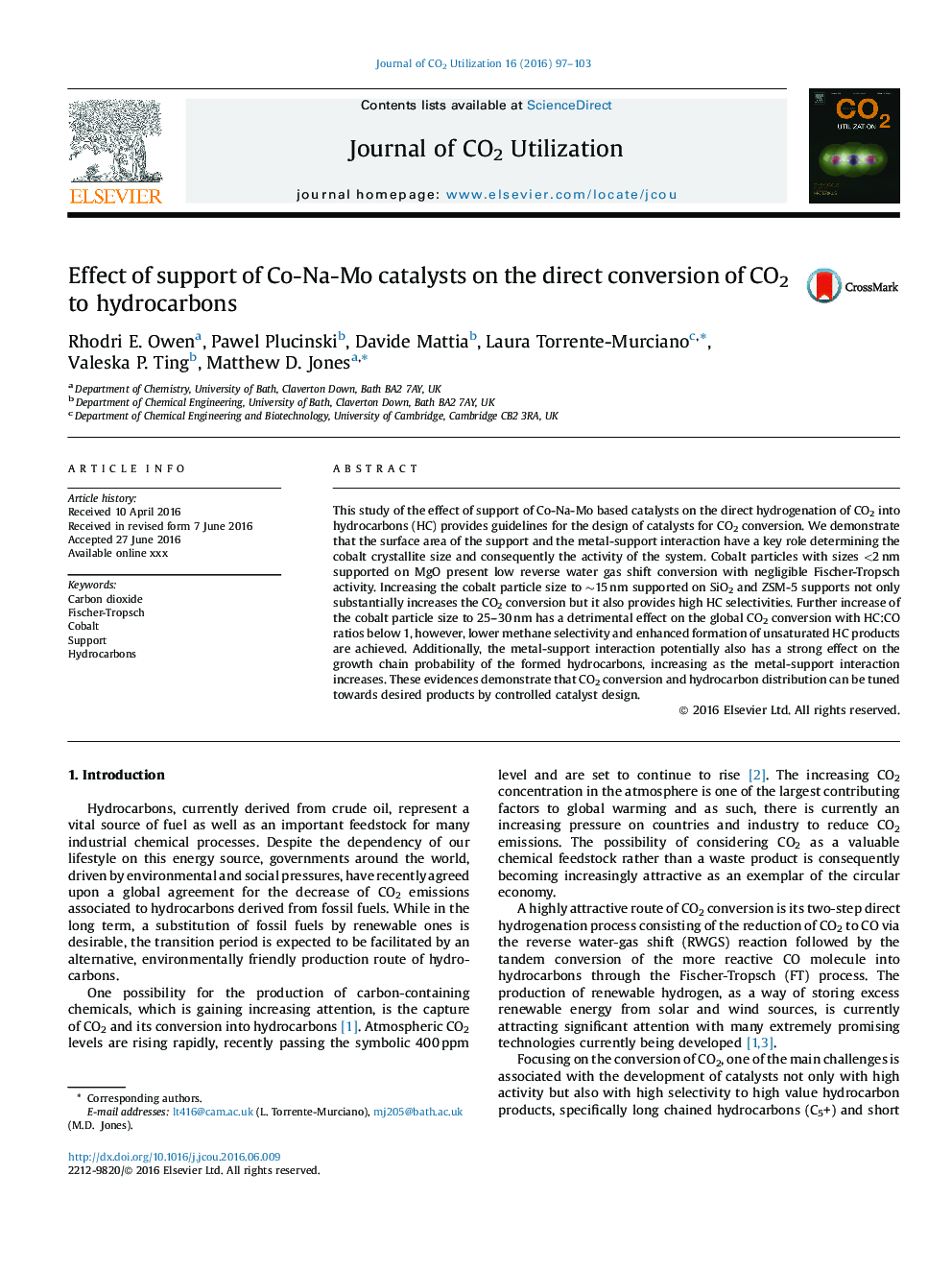| Article ID | Journal | Published Year | Pages | File Type |
|---|---|---|---|---|
| 63522 | Journal of CO2 Utilization | 2016 | 7 Pages |
•This paper describes the utility of a series of heterogeneous supported catalysts for the conversion of CO2 to hydrocarbons.•The paper reports a systematic study on the properties of the supports in this process.•The paper utilises mixed supports for the upgrading of CO2.
This study of the effect of support of Co-Na-Mo based catalysts on the direct hydrogenation of CO2 into hydrocarbons (HC) provides guidelines for the design of catalysts for CO2 conversion. We demonstrate that the surface area of the support and the metal-support interaction have a key role determining the cobalt crystallite size and consequently the activity of the system. Cobalt particles with sizes <2 nm supported on MgO present low reverse water gas shift conversion with negligible Fischer-Tropsch activity. Increasing the cobalt particle size to ∼15 nm supported on SiO2 and ZSM-5 supports not only substantially increases the CO2 conversion but it also provides high HC selectivities. Further increase of the cobalt particle size to 25–30 nm has a detrimental effect on the global CO2 conversion with HC:CO ratios below 1, however, lower methane selectivity and enhanced formation of unsaturated HC products are achieved. Additionally, the metal-support interaction potentially also has a strong effect on the growth chain probability of the formed hydrocarbons, increasing as the metal-support interaction increases. These evidences demonstrate that CO2 conversion and hydrocarbon distribution can be tuned towards desired products by controlled catalyst design.
Graphical abstractFigure optionsDownload full-size imageDownload as PowerPoint slide
